Philip K. Dickathon: The Zap Gun
Guest Blogger and WWEnd Member, Charles Dee Mitchell, has contributed a great many book reviews to WWEnd and we’ve invited him to contribute to our blog. This is the latest in Dee’s series of Philip K. Dick reviews that he started on his blog www.potatoweather.blogspot.com. We’ll keep posting them until he runs out of reviews or gets tired of Philip K. Dick books.
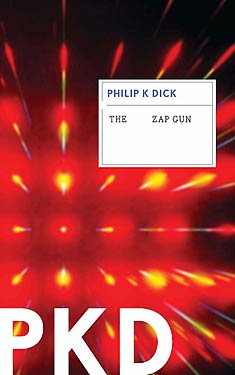 I was about fifty pages into The Zap Gun when it hit me. This PKD novel is a sustained satire on a focused topic. Each chapter did not introduce new characters with no discernible link to those I had already met. The plot had not yet splintered into blind alleys and drug-induced hallucinations. And PKD’s writing seemed relaxed. It lacked the driven quality that can inform both his best and worst books. He was having fun with this one.
I was about fifty pages into The Zap Gun when it hit me. This PKD novel is a sustained satire on a focused topic. Each chapter did not introduce new characters with no discernible link to those I had already met. The plot had not yet splintered into blind alleys and drug-induced hallucinations. And PKD’s writing seemed relaxed. It lacked the driven quality that can inform both his best and worst books. He was having fun with this one.
The object of his satire is the cold war arms race. The novel, written in 1965, is set in 2004. Lars Powderdry, known as Mr. Lars to his adoring fans, is a fashion weapons designer, the best in West-bloc. (West-bloc is us, the good guys. The enemy is a Soviet controlled Peep-east.) Lars designs while in a drug-induced trance. His sketches are whisked off to labs for fabrication and testing. His Peep-east counterpart is a young woman named Lily Topchev.
There is a dirty secret behind all this high tech militarism. None of the weapons work, nor are they needed. Agreements between West-bloc and Peep-east have made such weaponry obsolete. Films of the weapons in use are simulations using robots and special effects. The sketches are "plowshared." They become the basis for household gadgets and toys. The masquerade is necessary to keep the masses, the "pursaps," happy. They want both the threat of annihilation and the comfort afforded by weapons to avoid it. But then alien satellites appear in Earth’s skies and begin abducting entire cities to serve as slave labor in the Sirius galaxy. Lars and Lily need to make a real weapon but fast.
PKD outdoes himself with neologisms and acronyms in The Zap Gun. The concept of plow sharing has real poetry to it. The society is divided between an elite group of "cogs" and a mass of "pursaps." Lars is a cog, and he hopes the term derives from cognoscenti. I thought he was worried it might imply he was merely a cog in a wheel, but he goes back to an early English usage where "to cog" was to cheat at dice. I was pronouncing "pursaps" in a way that suggested "poor saps," but Dick makes it clear he means "pure saps." Surly G. Febbs embodies Dick’s jaundiced view of the masses. He is a self-important, deluded pursap angered because an alien invasion is delaying his appointment to what he imagines is an important government post. Febbs is a master of neologisms, hyphenated nouns, and acronyms, and he looks with disdain on those pursaps who cannot stay abreast of the lingo. That will likely include the reader, who might have trouble remembering what MACH stands for or just what a concomody does. Acronym fever reaches new heights with the creation of the BOCFDUTCRBASEBFIN. Who knows what it stands for? Just say it with confidence.
How earth repels the invaders is handled cleverly and dispatched with quickly. There is always the sense that PKD might not care much about his own plots. Of the PKD novels I have known almost nothing of before opening to page one, The Zap Gun is among the most enjoyable. I read that PKD wrote it because a publisher requested a story with Zap Gun as the title. That could be true. He once expanded a novella into a novel because the publisher had cover art he really liked. But PKD does well by his arbitrary title. In one scene the weapons designers are discussing their basic uselessness, and Lars says of the pursaps, "All they really want is a Zap Gun." That throwaway line sums up the satire and the underlying anger in the book.
WWEnd Grand Master Reading Challenge: May Review Poll
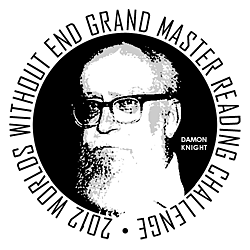 This month we have 8 featured reviews for the Grand Master Reading Challenge! Six different authors represented by 8 different reviewers including 2 first time reviewers. This is also the first month that we had 2 reviews of the same book featured in the blog.
This month we have 8 featured reviews for the Grand Master Reading Challenge! Six different authors represented by 8 different reviewers including 2 first time reviewers. This is also the first month that we had 2 reviews of the same book featured in the blog.
- Rocannon’s World by Ursula K. Le Guin – (Charles Dee)
- World Without End by Joe Haldeman – (Carl V.)
- Double Star by Robert A. Heinlein – (SarahPi)
- Way Station by Clifford D. Simak – (jfrantz)
- The Wind’s Twelve Quarters by Ursula K. Le Guin – (valashain)
- All Clear by Connie Willis – (Greg)
- Way Station by Clifford D. Simak – (Allie)
- Emphyrio by Jack Vance – (triseult)
You don’t have to be a GMRC participant to vote so jump in and make your opinion count! The poll is open until June 15th so you have lots of time to read all the reviews.
Here are the running stats from RhondaK101:
Authors with the most books read:
- Isaac Asimov (30)
- Robert A. Heinlein (30)
- Arthur C. Clarke (24)
- Joe Haldeman (23)
Authors with the most different titles read:
- Isaac Asimov (14)
- Robert A. Heinlein (12)
- Arthur C. Clarke (9)
Authors without any books read yet:
Books most frequently read:
GMRC Review: Emphyrio by Jack Vance
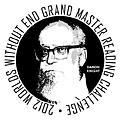 Daniel Roy (triseult), has contributed over 30 reviews to WWEnd including this, his second, for the GMRC. Daniel is living his dream of travelling the world and you can read about some of his adventures on his blog Mango Blue.
Daniel Roy (triseult), has contributed over 30 reviews to WWEnd including this, his second, for the GMRC. Daniel is living his dream of travelling the world and you can read about some of his adventures on his blog Mango Blue.
Editor’s Note: This is a May GMRC review that we didn’t get around to posting in time.
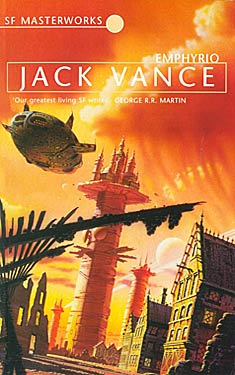 The great Jack Vance is sometimes described as a “gardener of worlds”, a description that encompasses much of the strength of Emphyrio. But unfortunately, for all the brilliant world-building, the novel lacks a certain dramatic tension, as well as a real appeal for the world it portrays.
The great Jack Vance is sometimes described as a “gardener of worlds”, a description that encompasses much of the strength of Emphyrio. But unfortunately, for all the brilliant world-building, the novel lacks a certain dramatic tension, as well as a real appeal for the world it portrays.
The world of Emphyrio is interesting, but strangely placid. There are otherworldly lords and ladies, and puppet-makers who build puppets of the flesh. There are spaceships and a plethora of worlds. But most of the story takes place on a small world of artisans, away from the most interesting aspects of Vance’s creation. Vance, instead, focuses on the workings of a “welfare society”, where artisans, deprived of any reproduction method whatsoever, must create beautiful works of art by hand, in order to receive a living wage.
The society Vance describes is interesting, but not very dramatic. There is a sense that this place is unjust and something of a repressive environment for the protagonist, Ghyl, and his father; but the form of repression they live through is pretty mild and unthreatening. There is no outburst of violence, no sense of impending doom; just a quiet rebellion against the ordained march of days of a woodcarver and his son.
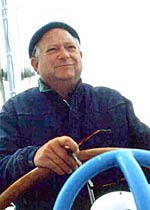 Likewise, Ghyl is not a fascinating protagonist. His obsession with a fragment of the legend of Emphyrio, and his slow draw away from his destiny as a woodworker, is well-written, but lacks dramatic tension. Action takes a long time to happen, and when it does, it doesn’t depict Ghyl in a very positive light. We’re meant to feel for him for being a noble outlaw, but I just found him easily manipulated, and too idealistic to realize the consequences of his criminal actions.
Likewise, Ghyl is not a fascinating protagonist. His obsession with a fragment of the legend of Emphyrio, and his slow draw away from his destiny as a woodworker, is well-written, but lacks dramatic tension. Action takes a long time to happen, and when it does, it doesn’t depict Ghyl in a very positive light. We’re meant to feel for him for being a noble outlaw, but I just found him easily manipulated, and too idealistic to realize the consequences of his criminal actions.
Overall, Emphyrio is well-written, and presents an original, evocative world. But the story told in this world lacks a punch that would make it as memorable as, say, To Live Forever.
GMRC Review: Way Station by Clifford D. Simak
 Guest Blogger, Allie McCarn, reviews science fiction and fantasy books on her blog Tethyan Books. She has contributed many great book reviews to WWEnd and has generously volunteered to write some periodic reviews for our blog.
Guest Blogger, Allie McCarn, reviews science fiction and fantasy books on her blog Tethyan Books. She has contributed many great book reviews to WWEnd and has generously volunteered to write some periodic reviews for our blog.
Editor’s Note: This is a May GMRC review that we didn’t get around to posting in time.
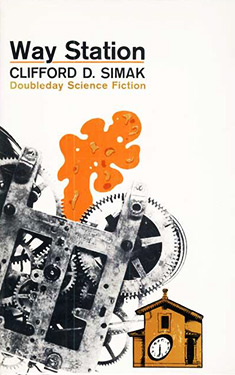 Way Station by Clifford D. Simak
Way Station by Clifford D. Simak
Published: Galaxy Science Fiction, 1963
Awards Won: 1964 Hugo Award
The Book:
"After the Civil War, the soldier Enoch Wallace returned to his family farm and rural hometown. After his parents’ death, he maintained a solitary lifestyle in that home, enduring for over a century with no apparent physical change. He lives peaceably, causing no trouble and existing only as a mild curiosity to his fellow townsfolk.
The secret of his eternal youth is technology, not magic. The truth is, Enoch has been recruited by an alien he named ‘Ulysses’ to run Earth’s first galactic way station. Unable to reveal his secrets to the world at large, he carefully records all the knowledge and wisdom he can gain from the many aliens with which he is able to converse. Now, however, people are starting to notice his unusual longevity, and it seems that he may not be able to keep the secrets of his strange life from being finally revealed." ~Allie
I first encountered Clifford D. Simak in middle school, through a tattered copy of City that I miraculously discovered a tiny classroom library. I hadn’t read any of his work since then, but WWend’s Grand Master’s Reading Challenge gave me the necessary push to finally read his Hugo winning novel!
My Thoughts:
Simak’s writing style in Way Station is very simple and clear, and it reminds me a bit of Asimov‘s style. I think the simplicity of the writing might annoy some readers, but I felt like it fit well with the tone of the novel. It is a slow-paced novel featuring a lonely near-immortal in a rural area. Despite the comings and goings of aliens, Enoch was a fairly unsophisticated man who had been leading an uncomplicated, if unusual, life. I found the character of Enoch very refreshing. He spent a lot of time carefully thinking through questions of morality and loyalty, as he slowly made peace with his own life. There were not all that many other developed characters in the novel, but it was very easy to empathize with Enoch’s thoughtful loneliness.
Most of the other characters, such as the coffee-drinking alien Ulysses, the well-meaning government agent, and the negative-stereotype-redneck Fisher family, were not deeply characterized beyond their initial impressions. The most developed secondary character, Lucy Fisher, seemed to be a little potentially problematic. Lucy is a young deaf girl that cannot speak, who is portrayed as having a kind of spiritual and magical purity and goodness born of her detachment from the modern world. Besides being a bit unlikely, Lucy’s portrayal did not bother me too much, but I imagine that it could be insurmountably irritating to people who have more personal experience with hearing disabilities.
Simak’s aliens and technology have a much more mystic and magical cast than most science fiction I’ve read. For instance, instead of having the aliens abolish religion, Enoch learns that all the aliens believe in a spiritual force. Many of the trinkets Enoch is gifted with, and the technology of the way station itself, are never completely explained. While some are clearly advanced technology, others appear to actually be mystical in nature. Since we see everything through Enoch’s point of view, we can only read what he is able to understand. I thought this was effective in communicating the idea of the massive wealth of knowledge of the universe, only a small fraction of which Enoch can ever truly grasp.
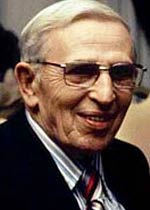 The story of Way Station moved rather slowly, and tended to go off on digressions and subplots that had only a tenuous connection to the main plot. Some of these subplots were actually quite interesting in their own right, but they did start to make the book feel a little unfocused. One in particular, concerning ‘shadow people’ that Enoch created from his own thoughts, seemed almost to be a criticism of traditional pulp characters. The conclusion of the subplot seemed to state that neither a wish-fulfillment version of oneself, nor a woman created solely to fill one’s romantic needs constitutes a believable person. Another tangential plot was the imminent threat of nuclear war, which dated the novel a bit. Many different subplots appeared to be coming together for the ending, but the conclusion ending up to be a disappointing one of the deus ex machina variety.
The story of Way Station moved rather slowly, and tended to go off on digressions and subplots that had only a tenuous connection to the main plot. Some of these subplots were actually quite interesting in their own right, but they did start to make the book feel a little unfocused. One in particular, concerning ‘shadow people’ that Enoch created from his own thoughts, seemed almost to be a criticism of traditional pulp characters. The conclusion of the subplot seemed to state that neither a wish-fulfillment version of oneself, nor a woman created solely to fill one’s romantic needs constitutes a believable person. Another tangential plot was the imminent threat of nuclear war, which dated the novel a bit. Many different subplots appeared to be coming together for the ending, but the conclusion ending up to be a disappointing one of the deus ex machina variety.
My Rating: 3.5/5
Way Station is the simply written account of a rural man, Enoch Wallace, who is tasked with running Earth’s only traveling station for aliens from all over the galaxy. It is a rather slow, contemplative novel, filled with Enoch’s thoughts and observations. I enjoyed seeing the various aliens and the alien artifacts through Enoch’s viewpoint, and I liked that the reader was almost never presented with a complete explanation for any of them. I found it interesting that Simak’s galactic empire still had room for mysticism and spirituality. One flaw of the novel was its occasional lack of cohesion, as the story sometimes wandered down side paths that were not particularly relevant to the central story. Other problems concern the frustratingly simple ending and a problematic portrayal of a young girl with a hearing disability. Way Station is a novel that shows its age, but I think it is definitely still worth reading.



















 Full Details
Full Details

